|
by Douglas Silas, Specialist SEN Solicitor It is always so hard to believe at this time of year that we are already halfway through the academic year - we now have more time behind us than in front of us! In this SEN Update, you will find sections entitled:
As I always say, I know how busy everyone is, so please feel free to read just the sections that are of interest to you, or read everything; the choice is always yours. Don’t forget, to ensure that you never miss out on one, you can get my SEN updates personally by completing your email details below, or by following me on one of the Social Media platforms that I use, at the top of this page. You can also share this update with others (please only do so if it may be relevant to them), by using one of the icons usually to the right or at the bottom of this page. TRYING TO HELP PEOPLE HELP THEMSELVES If you have read my SEN Updates over the years, you know that I genuinely try to help people as much as I can. I also try to help people help themselves as well with free information, such as that on our constantly evolving website at www.SpecialEducationNeeds.co.uk. But I know that we are now also at the start of the appeal season for school transfers this year. So, this year, I have decided to resurrect my previous seven-day email course, which is now called: ‘How to Win a SEN Tribunal Appeal’. As you may already know, I launched the course a few weeks ago and, as usual with my SEN Updates, it was sent out at 8.45am on a Friday morning. I set it up so that I would be notified when somebody signed up and I thought that a few people who needed it would probably sign up to it in the first week or so. But I was then astonished to find out that by 8.50am I had received five notifications of people signing up and that by 8.55am, over 10 people had signed up. During the course of that Friday and the ensuing weekend, over 100 people had signed up and since that time, a few hundred people have signed up. I have also been getting emails from people recently out of the blue, thanking us for writing the course and making it available for free. I was even amused by one email that I received from someone, a few days into the course, checking that there was no charge for the advice that we were giving away for free! In case you think you may benefit from it or need it, I have dedicated a page on our website for ‘‘How to Win a SEN Tribunal Appeal’ where you can sign up for it, but you can also sign up for it at the bottom of every page on our website. Can I encourage you to sign up if you think that you may need to appeal now or in the future and to also forward this information/link onto people if you think they may benefit from it, or need it. I hope that this helps. BUT I KNOW ITS GETTING HARDER FOR PEOPLE… After the reaction to my SEN appeal email course, I was also contacted by a number of parents who told me that they needed to appeal, wanted my help, but could not afford for me to do everything for them. They have asked me if there is any way I can help them still by writing their appeal for them to lodge and then letting them represent themselves through the appeal process. This need has struck a chord with me so, from today, we are going to also be offering a ‘Fixed Fee’ Service for parents to help draft their appeal (or their further evidence, if they have already lodged an appeal), to draft a ‘Working Document’ for them (for an appeal against the contents of an Education, Health and Care Plan [EHCP]), or to help prepare them for representing themselves at a Tribunal hearing. (N.B. in all of these cases, I still need to have a 1st meeting with someone to see if they have a case and advise them generally, which I can do via videoconference, to save people from travelling). You will find more information on our Menu of Services page. Again, I hope that this helps. FORTHCOMING SEN EVENTS As you may also know (especially if you were there yourself) the annual SEN Law Conference that I stage with IPSEA and Matrix, went ahead very successfully this year a few days ago. There were some great presentations about many SEN and Disability issues from a number of very experienced speakers, with differing perspectives. I am delighted to report that we had over 260 people attending, but I also need to stress that there were about 40 who could not get a place this year and were on the waiting list. In case you could not make it this year, in my next SEN Update I am going to try to relay some of the information that was shared. However, for now, in terms of forthcoming SEN events, I am going to also remind you of some of the same SEN events that I did in my last Update, which I think might be worth going to and which are:
SOME PEOPLE JUST DON’T GET IT! As a physically disabled man using a wheelchair, I am always astonished by how some people just don’t get the fact that there are some things that I cannot do that they can do. Over the years I have got used to the fact that people who meet me for the first time (even if they hear me speak out loud and should realise that I can actually think and talk for myself) sometimes patronise me. On occasion, they cannot help themselves and try to speak to an able-bodied person beside me to ask them things about me which I can answer myself, if they just ask me directly. Funnily enough, I actually feel sorry for them, as they seem to be the one who have difficulties! This was again brought home to me at the SEN Law Conference, when I was waiting by the lift with my wife, Erica, together with one of the venue staff. The first indication we had was when the staff member turned to Erica and asked her what floor I needed to get to. I did not really think about this, because it seemed like a very normal question to ask someone and I thought that the staff member was just making conversation and trying to be helpful. However, when the lift came and we all got in and Erica and the staff member went to press the relevant buttons, we were both a bit taken aback when this staff member turned to Erica and asked her about me and my needs. Erica immediately gave me the look, which she gives me when people talk to her, rather than to me and simply replied to the staff member that she should direct her questions to me rather than to her because I could speak for myself. However, I actually want to end this update with another story from just before the beginning of the SEN Law Conference, which I told at the start of the day when I gave my welcome to everyone. I do apologise if you were there and you heard it in person, but I realise that many of you were not and I think it is a great story that illustrates some of the difficulties that I and other disabled people face sometimes, because some non-disabled people just don’t get it. When we arrived in the morning, we were quite surprised to find that there was no ramp to allow me access to the venue due to the set of about ten steps from the pavement to the venue’s entrance. This had been agreed beforehand when we booked the venue. However, I realised that it was still quite early in the day and they might not have got it down yet, or there may be another reason. But there was no ‘call button’ for me to attract someone’s attention inside, which there usually is when I go into a place, to allow me to call someone out to help me. As it happens, funnily enough, although Erica went into the venue to ask someone to come and help me, whilst I was sitting outside in my wheelchair by myself, another passer-by stopped and asked me if I needed him to go in and get someone. In any event, somebody returned with Erica with a remote control and we found there actually was a lift that had been installed at the side and top of the steps, which had been folded up which (albeit very slowly) was brought down towards the pavement for me. This allowed me to put my wheelchair on it and be lifted up to the top (again, very slowly), from where I then went into the venue for the conference itself. A few minutes later, Erica came to me and said that, after I had managed to go into the conference room, she had returned to Reception to ask why there was no ‘Call Button’ that I could have pressed for somebody to have come to my assistance, in case I had been by myself. Unbelievably, the receptionist simply answered Erica by saying: “Oh, that would be no problem, he could just come in and get us!” You just couldn’t make it up, could you! With good wishes Douglas P.S. I always find it helpful to find out what people think about my updates, so please take a few seconds to tell me what you think by going to 'Spring (Half) Term 2019-20 'SEN Update – Your Thoughts’. There are just 3 quick questions. Gosh, isn’t time moving fast again, as we are now getting close to the end of 2019 (but remember, for those of us following the academic year, our ‘year’ won’t end until July 2020!) In this SEN Update, you will find sections entitled:
Don’t forget, to ensure that you never miss out on one, you can get my SEN updates personally by completing your email details below, or by following me on one of the Social Media platforms that I use, at the top of this page. You can also share this update with others (please only do so if it may be relevant to them), by using one of the icons usually to the right or at the bottom of this page. THERE MUST BE SOMETHING WRONG (THE CONTINUING SEND CRISIS) If you have read my SEN Updates in recent years, you will know that I have tried to highlight some difficulties I have noticed over recent years after the introduction of Education, Health and Care (EHC) Plans by the Children and Families Act 2014. You may remember also that one section in my Spring (Half) Term 2018/19 update was entitled: "The SEND Crisis”. I wish I could be more positive with you in this update, but I am afraid that everywhere I seem to turn these days seems to be telling me (both directly and indirectly) that difficulties are continuing and that things these days even seem to be getting a bit worse. There must be something wrong. For example, I am often involved with appeals to the SEND Tribunal, but this past year the SEND Tribunal seems to have been inundated with appeals which has meant that a lot of appeal hearings are having to be postponed at a very late stage, because of a lack of judicial time. The affect of this is crushing to many parents, both emotionally and financially and is playing havoc with the diaries of many educational and other associated professionals. I regularly hear the arguments that the whole appeal process is often felt by parents not to be fair, but I also hear that many Local Authorities (LAs) are still struggling to maintain their statutory duties, with the excessive funding cuts they have had in the past decade or so. No matter what perspective you have, the impact of funding cuts having severely hindered the work also of schools/colleges and thereby also affect pupils/students, so that some children and young people are sometimes not having access to any education at all, not just not having access to appropriate provision or placement. I am afraid that I am increasingly and continually seeing the system being attacked from all sides, with lots of difficulties not only regarding the amount of EHC assessments required and then the level of provision required by them, but also associated difficulties with restricted access to health and care provision (such as CAMHS [the Child and Mental Health Adolescent Service]) or the social care system (which is charged with keeping our children safe). I cannot tell you how upsetting it is to see this all happening. However, I was a little bit buoyed by reading the latest SEND Newsletter (November 2019) from the Department of Education (DfE) which says as follows: ‘The SEND Review The government has announced the launch of a crosscutting review of SEND. Five years on from the Children and Families Act, the review will look at how the system has evolved since then, how it can be made to work best for all families and ensure quality of provision is the same across the country. Recognising the importance of joined-up support, it will also explore the role of health care in SEND in collaboration with the Department of Health and Social Care. The review will consider:
It will conclude with action to boost outcomes and improve value for money, so that vulnerable children have the same opportunities to succeed, as well as improving capacity and support for families across England.’ As ever, these are fine words, but it is important that we follow through with things and look to the future. We owe this to our children and young people… SEN LAW CONFERENCE – SAVE THE DATE On a more uplifting note, I think that this is probably a good opportunity for me again to remind you that next year’s SEN Law Conference, which I help stage with IPSEA (which stands for Independent Provider of Special Education Advice) and Matrix will be held on Tuesday 3 March 2020 in Central London. We hope to be able to put out final details within the next week or so, but I have seen the draft agenda this week and it looks very exciting and also a bit different from the last couple of years. I encourage you again to put the date in your diary now and, when it is formally announced (don’t worry, I will let you know), please book your places quickly to avoid any disappointment (and to take advantage of the ‘early-bird’ discount!) I only say this because I know that some people left it to the last minute and missed out last year, even though we increased the venue size to try and accommodate more people. FORTHCOMING SEN EVENTS In terms of forthcoming SEN events in the next couple of months, I would draw your attention to the following:
SO WE DO IT!
My apologies - this last section is a bit longer today than usual. I have recently returned from doing my 10th (yes, ‘tenth’!) international bike ride for Norwood, a charity which helps children and young people with disabilities. My bike rides are generally a week-long (usually about 400 kilometres over 5 days – from Monday to Friday) but, as this year's was a big one for me, I rode about 600 kilometres over six days. As you may know from my previous updates, as a physically disabled person using a wheelchair, I do these rides by using a specially modified recumbent trike, which is attached to and guided by a rider on a normal bike in front of me. The front rider not only steers for me, but can also brake for me (unfortunately, my physical reactions do not allow me to respond quickly and I also have a visual impairment which hinders me). But actually, in this final section of my update, I want to tell you about something that happened on my ninth ride, last year in Greece. At the end of Day 4 of 5 last year, after covering about 100km that day already, it had got to 4pm by our last stop and we still had about 25 kilometres to go. I knew that we had to complete the day’s ride by 5.30pm when the sun would go down, because we do not have lights usually on our bikes and I know that safety always comes first. A number of riders were very tired and resigned themselves to not being able to do the last stretch in the time/daylight left and putting their bike on the accompanying van with a trailer and riding the last section on the accompanying ‘bus’ (that also transports our luggage from stop to stop every night). I was also very tired and had already worked out that, even if I could sustain about 15 kilometres per hour (not so easy when you are sometimes climbing up quite steep hills), I would not be able to do this last section within the remaining slot of daylight and, therefore, I was also starting to resign myself to having to sit out the last section, or be prepared to be ‘swept up’ by the ground crew and put on the ‘bus’ and my trike on the trailer. I really thought that I could not do it. However, something amazing then happened… My friend, Assaf, (a strong rider, who I have ridden with many times over many years), was my front rider, whose bike was attached to my trike. When I said that I didn’t think I would be able to do the last bit, in his no-nonsense style, he then just asked me: "Are you saying that you don't want to do it, or are you saying that you do want to do it, but you do not think you can?". I replied that it was the latter, that I wanted to do it, but I didn't think we would be able to; but he then simply responded to me: “So, we do it!” I now immediately felt a renewal of energy and when some of the other riders, who were about to give up and sit on the bus, heard that Assaf and I were still going to try to ride the next bit, they also felt a renewal of energy and decided to ride with us (including my son, Zachi). I cannot tell you about the thrill I then felt when riding that next section during the last hour or so. The first part was actually quite a hard slog, as we seemed to be continuously riding uphilI and I wondered sometimes if we had actually bitten off more than we could chew. But when we got to about 5pm and we saw the sun starting to set in the sky (by which time I had also been swapped to another strong rider called Steve), we all suddenly started riding faster and faster knowing that we still had about 10 kilometres to go and only about 30 minutes in which to do it. At one point, I saw the ‘bus’ in the distance and resigned myself to the fact that the ground crew were probably going to ‘sweep’ us up, but I suddenly found an increase of power again and started riding faster and, strangely, as we got nearer to it, the 'bus' disappeared. We were now all riding in a large convoy, riding together watching the sun gradually setting in the sky, but this was only encouraging me to ride even faster. The other riders around me saw this and that I was 'going for it', which somehow again renewed them with energy and they all kept up with me, which pushed me to try to go faster, which in turn made them speed up, pushing me to go faster – it was circular - you get the idea! We now seemed to be ‘flying’ along at speed and I noticed that we were starting to go downhill, which was making us go even faster still. It then dawned on me that this was because we had been slowly ascending uphill during the first hour or so, which meant that we were now enjoying the fruits of our labour going downhill at speed. After a few kilometres more, with the sun almost now set, I could see the 'bus' again in the distance. So, again, I resigned myself to the fact that the ground crew were probably going to ‘sweep’ us up but, once more, the bus disappeared. The sun eventually set and darkness was upon us, so I now thought to myself that there was no possible way that we were going to be allowed to ride without lights but, almost miraculously, a rider who had lights on his bike went to the front of the convoy and another rider. also with lights on his bike. went to the back so that other people/cars would be able to see us. We therefore carried on and seemed to be going faster and faster, until we eventually arrived at our destination, greeted by other riders from the bus which had already arrived, with applause and cheering when we came into all together, with the surroundings now being in almost complete darkness. It is really quite remarkable when you start to think positively and start to believe that you can do something, even though you genuinely thought a minute before that you really cannot do it. It was only later also that I found out that the reason we had not been swept up by the bus was the fact that there was so many of us riding that the ground crew had realised that they would not be able to put all of our bikes together on the accompanying trailer, so if it had only been a few of us individually we would have been swept up, but because there was so many of us, they decided they could not do so! My son, Zachi, who has now done rides with me these past six years and who I was sharing a room with that night, laughed together when we got into our room, knowing we had shared a very special experience together. He said to me with a big smile on his face: “You love doing something don't you, when you really think you can't!" With good wishes Douglas P.S. I always find it helpful to find out what people think about my updates, so please take a few seconds to tell me what you think by going to 'Autumn (Half) Term 2019-20 'SEN Update – Your Thoughts’. There are just 3 quick questions. Welcome back again after the summer break. I hope you have managed to recharge your batteries back up and have also now had enough time to settle back into another school year - I bet the holidays now seem like a long time ago to you! In this, my first SEN Update for the academic year 2019-20, you will find sections entitled:
As I always say, I know how busy everyone is, so please feel free to read just the sections that are of interest to you or read everything; the choice is always yours. Don’t forget, to ensure that you never miss out on one, you can get my SEN updates personally by completing your email details below, or by following me on one of the Social Media platforms that I use, at the top of this page. You can also share this update with others (please only do so if it may be relevant to them) by using one of the icons usually to the right or at the bottom of this page. YOU DON'T KNOW WHAT YOU DON'T KNOW (MY RESOURCES) At this time of year I like to refresh the SEN information that I provide to people on my website. Well, this year is no different, but this year I have tried to simplify things more by making everything easier to see and access. One of the things that I have noticed over the years is that so many people ask me for information that I already have freely on our website. I have found that both parents and professionals, both those who are new to SEN, or those who are experienced with SEN, find something on it that they didn’t know they didn’t know.
(Please note that it is sometimes easier for people to find out about these things by subscribing to my 10-part email course called: ‘A Guide To SEN’).
I tried a few years ago to put a lot of this information into an App called SEN.fyi, which people could carry around on their phones; but, although I was pleased that so many people downloaded and used the App, I have since increasingly wanted to try to simplify things further if possible. So, during the past year, I have gradually retired our App and, over the summer, have instead put all the information on it and more as links all in one place now on the home page of our website. Now it can be seen and accessed quickly and easily, so people do not have to search for things. But rather than me trying to tell you what I have done, it is probably easier for you to just see it for yourself by clicking here: www.SpecialEducationalNeeds.co.uk Remember, you don’t know what you don’t know… IT’S NOT JUST ME THOUGH... (OTHER PEOPLE’S RESOURCES) It’s not just me though that is trying to help people understand SEN - there are a number of other resources out there that can help people. Often, a good start (not just for parents) is the training guides at IPSEA’s website: www.ipsea.org.uk, which includes access to online training, face-to-face training, bespoke training and webinars. You may also be helped by IPSEA’s helpful guides about SEN. Then there is the CDC’s (Council for Disabled Children’s) website at https://councilfordisabledchildren.org.uk, which also contains or refers people to a lot of useful information (including, recently, a link to a good explanation of how high needs funding currently works in local authorities, which is on the TES website). Finally, there is SEN Magazine, whose website is at https://senmagazine.co.uk who also put out a bi-monthly publication, which has started coming out in the past few months as a digital version that you can read on your eBook reader or tablet. Remember though that you can find all of these things and more by going regularly to the SEN News section of my website, which is updated daily. FORTHCOMING SEN EVENTS This section of my Update is usually shorter when we start a new school/college year, because there is often not too much for me to talk about that is coming up yet. That being said, the things that I would draw your attention to are the following:
Also, before you ask, the Annual SEN Conference that I stage with IPSEA and Matrix is going to be held next year on Tuesday 3rd March 2020 (again in London). So make sure that you put the date in your diary now if you want to come, because I know the tickets last year went quite quickly and it was sold out beforehand. I will provide more details as soon as I can. I DIDN'T SEE YOU THERE!
When you are a wheelchair-user like me, you are usually sitting down and so are then roughly half the height of somebody who is standing up (unless you are a child, who is usually still on my eye level). People therefore often fail to see me until the very last minute, because I am below their field of vision. This often ends up in quite a few near misses, either when they are walking towards me, or even when I am crossing the road. I can’t tell you the number of times that I have been nearly hit by cars, even when I am using a zebra crossing. It is usually the same thing, either one car stops for me to let me go, but other cars behind them or coming the other way just keep going, or cars drive over my path when I am crossing, because they just don't see me. We often only avoid a collision because I stop or take evasive action as quickly as possible, or they slam on their brakes when they see me, sometimes screeching to a halt just inches away from me - it is really terrifying. Yet on some occasions, people in cars who have just narrowly missed hitting me, just carry on driving without a care in the world, not realising that they have only very narrowly avoided what could have been a fatal accident for me, which they would be held totally responsible for and could mean them being convicted of manslaughter by dangerous driving and being imprisoned. It really doesn’t bear thinking about, as so many lives (including those of our respective families) could end up being changed so dramatically in a fraction of a second. But probably the best example I can give you is the one which happens to me nearly everyday, where I am quietly travelling on the pavement and approaching people coming the other way, who are so engrossed in looking down at their phones, that they do not see me coming towards them. I also cannot tell you the number of times that I've had near misses with people like this, with them not seeing me in front of them. I have to be so careful not to collide with them, but they still almost crash into me even when I have slowed down considerably and am sometimes even stationary, when they suddenly look up a bit startled and find me sitting there just in front of them. I suppose you could say that they are just in their own little world! With good wishes Douglas P.S. I always find it helpful to find out what people think about my updates, so please take a few seconds to tell me what you think by going to 'Autumn Term 2019-20 'SEN Update – Your Thoughts’. There are just 3 quick questions. I always seem to say in my last SEN update at this time of the (academic) year, that I cannot believe we are already nearly at the end of another (academic) year – and this year feels just the same. In this SEN Update, you will find sections entitled:
As I always say, I know how busy everyone is, so please feel free to read just the sections that are of interest to you or read everything; the choice is always yours. Don’t forget, to ensure that you never miss out on one, you can get my SEN updates personally by completing your email details below, or by following me on one of the Social Media platforms that I use, at the top of this page. You can also share this update with others (please only do so if it may be relevant to them) by using one of the icons usually to the right or at the bottom of this page. THE NUMBER JUST GETS LARGER EVERY YEAR(SEN STATS) If you have read my updates previously in the last few years, you will know that at this time every year, I like to share the latest annual statistics about Education, Health and Care (EHC) Plans (previously Statements of SEN) issued by the Department for Education (DfE). The latest version of the DfE statistics was issued on their website at the end of May 2019 and there are a number of different versions that you can find here. The DfE’s webpage states: ‘This publication includes information on:
It is based on the statutory SEN2 data collection.’ The main points I have pulled out are as follows: ‘The total number of EHC Plans has continued to increase … There were 354,000 children and young people with Education, Health and Care (EHC) Plans maintained by local authorities as at January 2019. This is an increase of 34,200 (11%) from 2018. This is driven by increases across all age groups, with largest percentage increases in the 0-5 (13%) and 20-25 (32%) age groups. The total number of children and young people with Statements of SEN or EHC Plans has increased each year since 2010. There were 48,907 new EHC Plans made in the 2018 calendar year … There were 48,900 children and young people with new EHC Plans made during the 2018 calendar year. This is an increase of 16% compared to 2017. The number of new EHC Plans has increased each year since their introduction in 2014. The proportion of new EHC Plans issued within 20 weeks has fallen … In 2018, 60% of new EHC Plans were issued within 20 weeks. This shows a decrease from 2017, when 65% of new EHC Plans were issued within the 20-week time limit. This figure excludes exceptional cases where the local authority need not comply with the 20-week time limit if it is impractical to do so.’ As always, the DfE documents go into a lot more detail and there are also some visual representations and more breakdowns on what they have said here but, unless you work within this area and need this information, or work for academic purposes, you will probably just want the headline information that I have quoted above. Of course, the main thing of note, is that, again, there has been quite a sizeable increase over the course of 2018 of children and young people with EHC Plans and 40% of new EHC Plans are not being issued within (the required) 20 weeks. It also concerns me a bit that we seem to have been steadily increasing the number of EHC Plans (or Statements of SEN before them) over the past eight or so years, even though we were told that the introduction of the new SEN Framework would mean that more children and young people with SEN would be able to have their needs met without EHC Plans. Yet this does not seem to be the case for reasons that I have highlighted earlier this year in a previous update, which was talking about some people saying that there may now be a SEN crisis (the one talking about the SEN Law Conference). I am really not sure what more I can say here now, since the statistics seem to speak for themselves in many ways. However, trying to look at this as objectively as possible, it does seem to me that the main increase in the last year (at 32%) has been in the 20-25 age group, which seems to be new entrants to the SEN system that may not have been there before. Also, the second largest percentage increase (at 13%) was in the 0-5 age group, which might be because we are getting better now at identifying SEN in children under the age of 5. But given the fact that we are still living in an era of public funding cuts, it does seem to me that this continual increase in EHC Plans and the corresponding demand on public funds, may mean that if we continue in this manner to increase every year, the increases will not be sustainable. I know that this feels like the ‘elephant in the room’ but I do feel it needs to be said and we all need to put our heads together to work out the best way around it, otherwise no-one is going to be happy in the end, as the number of EHC Plans just seems to get larger every year. “A PLACE AT THE TABLE” (MEDIATION FOR YOUNG PEOPLE) I recently had the pleasure of attending the launch event for the project report called ‘A Place at the Table: a report on young people’s participation in resolving disputes about special educational needs and disability’ written by Margaret Doyle (who is herself a trained mediator). Again, it may be easier for you to read the full report which you can find here. However, I know that everyone is very busy so it may be easier if I try to summarise a few things for you here. Probably the best place to start is to quote the text from the report’s website which states as follows: ‘Decisions made by local authorities on SEND provision reflect many aspects of concern in administrative justice, including the quality of initial decision-making, accountability of public bodies, human rights considerations in the delivery of public services, mechanisms by which people can challenge and appeal such decisions. The project has sought to contribute to our understanding of the way these aspects of administrative justice are experienced through the mandates of children’s rights and participation and access to justice to our knowledge from a best practice for including children’s and young people’s voices in the process. The project has focused primarily on young people aged 16-25 in England and their involvement in SEND mediation. Reasons for this focus includes the new rights conferred on young people at age 16 by the Children and Families Act 2014; the steep increase in mediation numbers, from 75 in 2014 to nearly 2,500 in 2017, and the distinctive fault of parties in mediation, as decision-makers, which differed from their role in tribunal appeals or ombudsman complaints. The expectation is that it will be of value to the issue of participation of children and young people of all ages and in other jurisdictions and in other forms of complaint and dispute resolution, including appeals to the SEND Tribunal and complaints to the Local Government and Social Care Ombudsman. The report draws on interviews and discussions; documents produced during the project, including blog posts and a briefing paper; and a summary of a round table discussion held in June 2018. Participants, who have been hugely generous with their time and contributions, have included mediators, tribunal members, local government, advice and advocacy organisations, parents/carers and expert academics. Three key things have been explored in this project:
I can also probably do no better than to quote from the ‘Emerging Findings’ in the report itself as follows: ‘During the course of the project, key messages have arisen that go beyond mediation and tribunal practice needing to adapt for more inclusive participation. A key message is that ‘participation’ covers a range of types and levels of involvement, from expressing views to making decisions. In the SEND context, it is important not to see this range as a hierarchy, with some types of participation more valuable than others. Facilitating participation and taking account of children and young people’s views have long been emphasised in the SEND Code of Practice. However, in the context of legal advice under the Children and Families Act, it is decision-making rights for young people that are new. Yet it is currently difficult to determine the extent to which young people are exercising their rights to request mediation and to register an appeal to the SEND Tribunal because the data is not collected. The conclusion reached in this project is that few young people are doing so. It also appears that a small number of young people attend SEND mediation or SEND Tribunal hearings. Figures from one SEND mediation provider, which works with about one-third of all local authorities in England, suggest that children and young people attend mediation in only 8% of cases. The extent of children and young people’s involvement is not possible to determine from the collected data, so this figure is likely to reflect a range of levels of participation, including attending only and not being involved in meaningful decision-making.’ Margaret goes on to say: ‘The emerging findings suggest that: 1. Young people are not exercising their rights on SEND decision-making to the extent that might be expected. This may be because they know about their rights and choose not to exercise them. Alternatively, it may be because of the lack of a rights 'infrastructure' to support them to exercise their rights. We do not know enough to determine the reasons, but without adequate information and advice, it is difficult to expect children and young people to be aware of and exercise their rights. 2. The emphasis on participation is both a source of anxiety for young people and a means of empowerment, much as learning to drive can be. If it is a source of anxiety for some young people, this does not necessarily mean they do not want to be in the driving seat (although some may not), but they need support and practice. Decision-making is a learned skill. 3. Parents face a significant change in role as their children grow up and become rights holders, and they may need support in how to move from being advocates for their children to supporting their children to take a lead as decision-makers. The concerns that parents express about decision-making rights of young people with SEND reflect the importance of the relationship and the need to address their anxieties as well as those of young people themselves. Yet little support is available specifically addressing this. 4. The legal concept of mental capacity appears not to be well understood in the SEND context, and assumptions about capacity of children and young people can generate conflict and hinder attempts at meaningful participation in decision-making. Approaching young people's participation from a capabilities perspective rather than one of mental capacity may allow for more scope for supported participation and decision-making. Such a perspective also recognises the importance of relationships and trust between young people, their parents, and LAs. 5. Addressing both attitudinal and practical barriers may require a significant shift in culture and in political will to provide the information and advice infrastructure necessary for the exercise of those rights to become a reality. Significant changes in the information and advice infrastructure (rights awareness, legal aid, SEND expertise, advocacy) are needed to make exercising this right a meaningful and realistic option for those children and young people who choose to do so. The responsibility for these changes rests primarily with local authorities and the Department for Education as the statutory bodies, but they cannot happen without the involvement and commitment also of schools and colleges, health and social care professionals, parents, and mediators and tribunal members. 6. Insufficient data are collected and published by mediation providers and the SEND Tribunal to allow for a full picture of young people's participation. The rights for young people enshrined in the Children and Families Act are not being reflected in procedures and practice, and this contributes to a lack of administrative data on, for example, numbers of young people participating in mediation and tribunal hearings. Help will be needed from the Department for Education and local authorities. 7. Mediators and mediation providers could be doing more to engage with young people directly and to adapt their processes to be more flexible and inclusive. This includes initial awareness raising and providing information that is accessible to young people. The Professional Standards for SEND Mediators could be more detailed in the expectations of what training and experience are required of mediators in relation to working with young people with SEND. 8. Consideration is needed as to how young people can be involved as co-producers of guidance on designing/redesigning dispute resolution processes that facilitate their participation as decision-makers. This is a design challenge, however, to ensure that such co-production is not tokenistic and exploitative, and it is resource-intensive if it is to be genuinely inclusive. Established participation groups of young people with SEND have an important role, but they are not intended to be representative of young people generally, and there will be a range of views and preferences as well as a range of needs to take into account.’ Finally (at the end of the ‘Executive Summary’), Margaret’s says the following under ‘Recommendations’: ‘A number of ideas have been generated from engaging with supporters from a range of perspectives. The ideas have led to recommendations for improvements in practice and for further research, which I have set out in more detail in the final Part of this report.’ Again, I do not think I can say very much more, can I? Can I suggest again that, if this is something which may/should be of interest to you, it is probably better to read the report in full which, again, you can find here. FORTHCOMING SEN EVENTS As we are nearly at the end of the academic year, there do not seem to be many forthcoming SEN events that I think may be worth going to. I would only highlight the following
FALLING FLAT ON MY FACE!
I am going to end this update a little differently today, by not telling you a single personal story, but sharing with you a couple of stories. But I also want to first put things in context. A lot of people like to say that you should always try and reach as far as you can when you do something. This usually stems from the feeling that you need to be able to show yourself and others that you have tried as hard as you can and could not have done anything more. This is very motivating and trying your hardest like this sometimes leads to outcomes that no-one was expecting. In fact, it is also said that sometimes it is good for a teacher to ask their pupils at the end of a test, if they have really tried as hard as they could have and to put their hands up if they have not. You will be surprised at how many children will actually put their hands up and admit that they didn’t do their best, but how this lesson then teaches them for the future and motivates them to always do the best they can. But sometimes, you need to also remember not to reach too far. Although I also subscribe to the view that you should always try to do your best, as a physically disabled man using a wheelchair, but who still has to try and balance on his legs sometimes, I have found that I can sometimes actually reach too far for something sometimes and then over-balance; so the next thing I know is that I am on the floor, having fallen flat on my face! There are numerous stories I can tell you about times like these; like when I am reaching for something very carefully and slowly, putting in enormous effort to get it, but just as I am about to get it, finding that somebody, who genuinely thinks that they are helping me, then moving it to somewhere that they think is closer for me to get it, but me then being surprised and disorientated by this and not only then not getting it, but also losing my balance and falling flat on my face! Or the times when I am reaching for something, but just as I am about to get it, ending up knocking it a bit further away from me and then having to reach a bit further for it again, but ending up knocking it a bit further away from me again; and doing this over and over again until I reach just too far and, you guessed it, ending up losing my balance and falling flat on my face! What I have learnt from this though is that I just need to learn to get up myself again. I have also found that this is actually better for me in the long run, both mentally and physically. Overall, I have learnt that, whist it is important to always try your hardest, you should not over-reach for something. So, whilst I know that it often feels a bit counter-intuitive to not reach as far as you can for something, or to watch someone struggle and not do anything to assist them, please remember that sometimes you can help me by not helping me! With good wishes Douglas P.S. I always find it helpful to find out what people think about my updates, so please take a few seconds to tell me what you think by going to 'Summer (Half) Term 2018/19 'SEN Update – Your Thoughts’. There are just 3 quick questions. Firstly, for those of you who have previously read my SEN Updates, you may have noticed that, over the past year or so, I have sometimes tried to put out slightly shorter and a bit later updates. This is because, from my general perception and from feedback I have received, I have started to see increasingly during these past few years that people’s lives are becoming busier and, with even more distractions around them, they seem to have less time to read things. I have also noticed that, when schools/colleges now go back in the first week of term, rather than parents having more time available again, or professionals feeling they can now concentrate better as they are back at work, in that first week back, both types of people now seem to need more time to get back on top of things. I know everybody’s time is more limited these days, so I hope that you enjoy this new shorter and later format a bit more. Don’t worry though, in all other respects, my updates are the same as before. In this SEN Update, you will find sections entitled:
As I always say, I know how busy everyone is, so please feel free to read just the sections that are of interest to you or read everything; the choice is always yours! Don’t forget, to ensure that you never miss out on one, you can get my SEN updates personally by completing your email details below, by using our App ‘SEN.fyi’, or by following me on one of the Social Media platforms that I use, at the top of this page. You can also easily share this update with others (please only do so if it may be relevant to them) by using one of the icons usually to the right or at the bottom of this page, or on our 'SEN.fyi' App (by using the ‘share’ feature at the bottom of the page). BE CAREFUL WHAT YOU WISH FOR! (THE SEND CRISIS) As you may know from my previous updates, the Annual SEN Law Conference that I co-host with IPSEA and Matrix Chambers was held this year, last week, on 5 March 2019. It still amazes me that, even though we catered for more people this year (almost 300), we still had to turn people away as we did last year (when we catered for just under 250). Please accept my apologies if one of these was you and let me point out that the conference pack, which includes the speakers’ papers/slides, is available here. If you were unable to make it this year, I want to share with you first some things said by Ali Fiddy, the Chief Executive of IPSEA, who opened the conference. Ali’s presentation was entitled: ‘SEND Crisis’ and split into three parts; firstly, looking at indicators we are in a crisis situation, then looking at the causes of the crisis from various people’s perspective (not only parents/carers, but also others such as Local Authorities (LAs), schools/colleges and SEN professionals) and lastly she made a few suggestions of how the crisis could be addressed. I will not try to tell you everything that she said (particularly if you were there, or one of those people getting the conference pack), but I want to share some things here. Ali firstly referred to the report from October 2017, from the Local Government and Social Care Ombudsman (LGSCO) where the outcome of 80% of the first 100 investigations they made about SEND were upheld, compared to a figure of 53% in other areas they investigate. She also referred to the Ofsted Annual Report for 2017/18 looking at a number of areas of LAs providing substantive services in relation to SEND provision and referred to findings like: weaknesses in the identification of children/young people with SEND; variation in quality of Education, Health and Care (EHC) Plans (including non-implementation of agreed support) and poor SEND provision provided to young people from 19-25. She also made reference to a lot of children and young people with SEND being excluded or ‘off-rolled’. Ali also raised the fact that almost half of all local area SEND inspections conducted by Ofsted/CQC (the Care Quality Commission) had required ‘Written Statements of Action’ and additionally referred to a number of Judicial Review cases brought by parents and carers. She then referred to there being a significant increase of appeals brought to the SEND Tribunal, particularly the increase in recent years when it was just over 3,500 in 2011/12, but in the last year it was over 5,500. You will recall that the new SEN Framework brought in by the Children and Families Act came into effect in September 2014. Ali then looked at causes of the crisis, referring to evidence being given to the Education Committee’s SEND enquiry, including LA evidence about having to do a lot of work in relation to transfers from Statements to EHC Plans and dealing with increasing requests for EHC Needs Assessments/Plans, without additional resources and insufficient funding, or the now extended responsibilities in relation to the 19-25 group. She also referred to schools and colleges and their feeling that there was an underestimation of children and young people’s needs in EHC Plans and a lack of support from Educational Psychology (EP) services and insufficient funding being available again (this became a theme throughout the day). She also referred to surveys conducted by schools and colleges, which referred to not enough staff and teaching assistants being available and generally insufficient support being there. In relation to SEN professionals, such as EPs, Ali said that there was an increase in requests for EHC Needs Assessments, but insufficient EPs being able to manage these. She pointed out a disappointing statistic that there had been a reduction from 1900 EPs in 2010 to 1650 in 2015. In relation to the question of how the crisis can be solved, Ali pointed that, overall, that there were some good things also, but that she felt that there needed to be more focus on successful implementation, particularly in relation to cultural shifts, the legal framework and better accountability. Ali also pointed out the fact that there needed to be better guidance from the Department of Education (DfE), more possibilities for 19-25 year olds, more advice and support for parents of young people, improved joined-up working and, of course, more funding! SOMETHING ELSE THAT MAY MAKE YOU THINK (FUTURE SEND DIRECTION) Later in the day, we also heard from André Imich, the SEN and Disability Advisor from the DfE. His presentation was entitled “Future SEND the Direction – Key Priorities” and, like Ali, he split his presentation up into three parts: firstly, looking at current challenges, then looking at successes since 2014 and lastly looking at the direction for future priorities. André identified the challenges in the delivery of the SEN reforms, highlighting problems with capacity (e.g. high staff turnover, training and changing the culture of the SEN Framework), the pressure on school places (highlighting the increased amount of demand for special school places and the need to keep mainstream schools onboard, (i.e.successful inclusion). He also pointed out the increased financial pressures on budgets, the increase of requests for EHC assessments and for EHC Plans, as well as the increasing number of EHC Plans themselves (which he said was up over 11% from 2016). André shared with us a number of graphs regarding assessments/appeals/school placements and said that the fact was, that whilst there were a number of difficulties, there were also a number of things to celebrate, in relation to ‘co-production’, ‘compliance with statutory duties’, ‘increased satisfaction with local services’ and ‘timely identification of SEND’. André also referred to LAs where there had been ‘improved attainment’ for those children and young people with SEND, where there had been stronger focus on SEN support and where more young people were going onto post-16 education, training and employment. In fact, he even went as far to say that there was improved parental confidence in a number of areas and that the DfE are encouraged by early evidence of the impact of the implementation of the SEND reforms and how they have improved the lives of children and young people, but they also recognise the challenges and that there was much more work to do to achieve consistency across the country. André also made reference to a number of the studies that Ali had previously referred to and pointed out the fact that we did not know the statistics for this last year yet and these would be coming out in May (which I will refer to in another SEN Update later this academic year). I know from speaking to people afterwards (both professionals and parents) that they felt that André was perhaps putting too positive a spin on what has actually been happening on the ground. I will not express any personal or professional views about this, but think it is better just to set out the different perspectives of Ali and André here, as to what seems to be happening in the SEN world and then let you make up your own mind. I hope that this is something else that makes you think… FORTHCOMING SEN EVENTS In terms of forthcoming SEN events that I think might be worth going to are:
YOU CANNOT CONTROL EVERYTHING...
Most people know that I am physically disabled and use a wheelchair to get around, so those who hear me say this each time in this section of my update have my sincere apologies for repeating myself; but I am always conscious that each update there are more people subscribing since the last one, who may not know this. New subscribers may also not know the fact that I have become well known over many years for doing international bike rides to raise money for Norwood, a charity for children and young people with disabilities. Anyway, you may recall that, in the ride that I did a couple of years ago, I was quite upset to find when I arrived at our destination, that the airline we had flown with, had bizarrely failed to bring my electric wheelchair from London and I therefore had to spend the first few days of the ride having to struggle around with an old-fashioned and uncomfortable manual wheelchair lent to me by the airport, until I got my own wheelchair back again. I wonder if you can realise just how difficult it was for me to be without my electric wheelchair and therefore not being as independent as I like to try to always be by being able to ‘control’ my wheelchair (which I often refer to as being my ‘legs’!) So, I decided on this next ride, after the fiasco of what happened the previous year, to try to be a bit clever. During the past year, after misplacing so many things (not helped by my sight deteriorating), I have been investing in a number of ‘Tiles’ which I have attached to my keys, briefcase and other possessions that I can then locate easily from my phone. (Just to explain a bit from the 'Tile' website: 'Tile uses Bluetooth to communicate with a companion app on a smartphone or tablet, whereby the Tile app "discovers" a Tile and establishes a connection to it using the Bluetooth signal. While competitors are restricted by Bluetooth's typical connectivity range of 100 feet , Tile's range can go far beyond that by using the Bluetooth connection of neighbouring smartphones running the Tile app to cast a wider search net.') Anyway, this time, as I realised I could not afford to lose my wheelchair for a second time, I wanted to ensure that it made it onto the plane, so I bought a new Tile to attach to my wheelchair. Unfortunately, though, I did not have time to attach it properly to my wheelchair, before I left for the ride So, at the airport, I quickly attached it to my wheelchair, by way of a strong plastic tag attached to one of the push-handles and then tucked it inside the back rest. When we boarded the plane, I had been sure to tell the ground crew who brought me on the plane that I really needed them to make sure that they put my wheelchair on the plane this time. I then did not check my phone, because another rider I was with saw out of the window on the plane whilst we were waiting on the tarmac whilst the bags were being loaded and told me that they could see that the ground crew had put my wheelchair on this time. (I was not the only person who was nervous this time, as a number of other riders had witnessed me first-hand the previous year being without my wheelchair and were really upset for me, so did not want me to have to go through this again). When we got to our destination (in Greece this time), my wheelchair was waiting for me when we arrived, so I felt quite relieved and even a little smug that everything was alright and that, even though I had not ultimately needed it, putting the Tile on as a precautionary measure had paid off in the end. We collected our bags (I had even purchased a Tile and put it in my main bag and another in my ‘day bag’ (i.e. my rucksack with me), went out of the airport and boarded the coach who was taking us to our destination for the night. I was pleased again to be told by someone who was sitting above where they were loading the luggage onto the coach (which is below where you sit), that they saw my wheelchair put onto the coach. Imagine my surprise and concern though to then see and hear the last person who came on board, hold up my wheelchair ‘Tile’ still attached to the plastic tag, but no longer attached to the wheelchair, and ask: “Has anybody lost this?” See, don’t try to be too clever! With good wishes Douglas P.S. I always find it helpful to find out what people think about my updates, so please take a few seconds to tell me what you think by
There are just 3 quick questions. Firstly, let me wish you all a belated Happy New Year - I hope you have a good and peaceful 2019. This is my first Update of the new chronological year 2019, but it is also important for me to point out that we are now over 1 term of 3 into the new academic year 2018/19. In this SEN Update, you will find sections entitled:
As I always say, I know how busy everyone is, so please feel free to read just the sections that are of interest to you or read everything; the choice is always yours! Don’t forget, to ensure that you never miss out on one, you can get my SEN updates personally by completing your email details below, by using our App ‘SEN.fyi’, or by following me on one of the Social Media platforms that I use, at the top of this page. You can also easily share this update with others (please only do so if it may be relevant to them) by using one of the icons usually to the right or at the bottom of this page, or on our 'SEN.fyi' App (by using the ‘share’ feature at the bottom of the page). HAVEN’T WE BEEN HERE BEFORE? (SEN ISSUES) As I mentioned in my previous Update, the Westminster Education Forum held its annual conference about SEND on 6 December 2018 entitled: ‘The Next Steps for SEND Policy – High Needs Funding, Local SEND Service Provision and Improving Outcomes’.This is almost an annual event these days in the Autumn term. Although I was unable to attend it personally for work-related reasons, I did manage to obtain a transcript of the event afterwards, which has made for interesting reading, so I want to share some things discussed there with you here. There was firstly a presentation from Dr Adam Boddison, the Chief Executive of nasen, entitled: ‘Where Next for SENDPolicy in England?’. In his presentation, Adam talked about some mainstream schools being SEN ‘magnets’, as they are an inclusive school that seems to attract many children with SEN. This is both because parents wanting their child with SEND to go to that school as it is more welcoming (or more happy about their implementation of SEN support), or because other mainstream schools tend to refer to children with SEN to them. But he then also spoke about the fact that a number of these other schools also do this because they realise that if they don’t do it, they may be penalised in some way. Adam also said that, whilst the principles of the new SEND Code of Practice were quite good, in identifying and meeting all the needs, it had tried to be implemented at the time of limited budgets, schools turning into academies and changes to school assessments, so that it has probably been overshadowed. One other thing that got me thinking was when Adam made reference to Ofsted and the fact that he did not think that mainstream schools should be rated as ‘Outstanding’, if they were not inclusive. In fact, he pointed to one school now graded as ‘Outstanding’ by Ofsted, even though it had not had a SENCO in place for 5 years! Overall, he felt that, at the moment, schools are judged on a very narrow set of academic outcomes and he felt this needed to be broader. He also pointed out the fact that ‘progress’ should not merely look at academic attainment, as children with SEN may not be able to make the same academic progress as others, but the progress they were making was still very important and should be recognised. All in all, I felt that Adam’s presentation neatly set up the Conference and the other speakers who were there. There were further presentations from a member of the Parliamentary Education Select Committee, who are currently conducting an Inquiry into SEN, a presentation about joint Ofsted/CQC local area inspections and one about creating effective EHC Plans for young people with SEND (from the user’s perspective). There were also a couple of panel discussions. Most people seemed to be highlighting problems with the SEN system. However, the end of the conference had a presentation from the well-known and respected Brian Lamb, who chaired The Lamb Inquiry in 2009 looking into parental confidence in the SEN system and who is the current chair for ‘Achievement for All’. Brian’s presentation was entitled: ‘Priorities for the development of SEND provision in England’ and he started by saying that, as he had been was listening to the other speakers talk about the problems with the current system, that he had been taken back to 2005/2006 and the Education Select Committee’s Inquiry where they found that parents were really unhappy and that the SEN system was not working, because there were too many exclusions, too many Tribunals etc. Brian pointed out that, although there were still many problems, we seemed to be only focussing on the difficulties and not recognising that there had been some improvements and felt that any parents would now not want to go back to the old system. However, he did recognise that there was still a lot of work to do and that there were still a lot of Local Authorities (LAs) and schools still not doing things right. Brian said (as he had done in the Lamb Inquiry) that although we should recognise that the current SEND Code of Practice would benefit from being rewritten, we would not benefit from more legislation, as it was not about changing the law, as much as it was about holding people more accountable in law. He said that we still needed to change the culture of the system to achieve better outcomes and that compliance won’t change people’s hearts and often parents will choose for their child to go to a school that was welcoming than one that was not. He repeated many times the need for us to ‘tweak’ the system rather than change it wholeheartedly and thought we could amend some things quickly like:
As the end of his presentation, Brian also spoke a lot about the SEN funding system and how this had fallen over many years, whilst trying to implement a new system, particularly for the post-16 section. So, although I was unable to attend the Conference personally, I benefitted greatly from reading the presentations afterwards and I hope this helps you in the same way. YOU DON’T KNOW WHAT YOU DON’T KNOW (10-PART EMAIL COURSE ON SEN) Over the years, as I have become more and more experienced in SEN issues and the law, I have been a bit taken taken aback to find how so many people who are personally or professionally involved in this area, need to know more about the SEN system, This even applies to those people who I feel should know about things because they are working in this area, but seem to be under a misapprehension of what the law actually says. Although, I have always endeavoured to provide as much information as I can on my website, I have recently decided to put together a 10-part email course that anyone can sign up to receive, entitled: ‘A Guide to SEN’, which I have written in as straightforward a way as I can. I have deliberately written it as a 10-part email course and dealt with different things in different parts and allowed people time out to sign up to receive it on a daily, weekly or an every 3-day basis, as I know that people have different requirements. At the end of each part I have also included links to further articles that may be of interest on other SEN topics As always, I hope that this helps as many people as possible. In fact, the email course went up on my website a few weeks ago and many people who have visited my website in the past few weeks may have already seen this and signed up to it (according to the data/stats I have received), even though I have not formally launched it until now. This has been very gratifying for me to learn, as it shows there is a real need out there. So, even if you think you know all you need to know about SEN, please subscribe if you can – you may find out something that you didn’t know before! FORTHCOMING SEN EVENTS Those of you who have signed up to receive information from me by email or on social media, will have already seen that, by request from a few people, we have extended the date for the early bird discount to today for the SEN Law Conference that is taking place this year on the 5 March 2019, which I am co-hosting with IPSEA and Matrix Chambers. As I understand it, about 200 people have already signed up to come to the conference and there are only limited places left, although we have moved venue this year to accommodate more people So I encourage you to book a place if you can now, before it is too late. If you want to seize on the extended early bird rate for a discount, then I’m afraid that you only have until the end of today to get it, if you book and pay for your place. You can do this at: www.senlawconference.co.uk. In the meantime, the other forthcoming SEN events that I think might be worth going to are:-
“CAN YOU HELP ME PLEASE?”
As a result of my progressive physical disability and visual problems, I stopped driving a car many years ago. Now, although my office is only a few minutes’ drive away from my home, I have an arrangement with a local cab company, to sometimes pick me up and drop me, either from home to the office, or from office to home, on a door to door basis. As I am still able to walk a few steps, with the assistance of somebody beside me (or rather me hanging onto them for dear life!), I can do this usually, without having to use my wheelchair. Although the cab company has a note on my account to say that I am physically disabled and can’t walk very much, so will need assistance, which they pass on to the drivers coming to collect me (many of whom already know me), this information does not always filter down and so I need to remind them on each call when I book, to make sure that they tell the driver about my difficulties and to park as close as possible to the door, so that I only have a little way to negotiate. I sometimes have to work late in the office and, this time, as my wife, Erica, was out and couldn’t get me, I rang for a cab, which they said would be about 5-10 minutes. As usual, I reminded them to tell the driver that I was disabled and to park as close as possible to my office. I was therefore pleasantly surprised when, after only after a couple of minutes, I received a call from the cab driver on my mobile phone to say that he had already arrived. On this occasion, the driver didn’t speak very good English. I came out of my office and locked up, but to my surprise, he was not outside, as I thought he said. I should also point out that it was a very cold evening and I do not do well in the cold, as my body seizes up. I called back the number in my calls list on my mobile phone and found that he had actually gone to the wrong place, but I could now spot him over the road and a little way up. Struggling to make myself understood, I said to him that I could see him and waved my hand (difficult when you are trying to keep your balance) and asked him if he could see me. He then said he knew where I was and, as I thought that was it now, I put the phone down. But instead of him pulling out of his parking space and driving towards me, he pulled out, drove in my direction, then turned into a side road and went off in a different direction! I was not expecting this and quickly called him back again and asked him what he was doing. It took me a further few minutes to find out where he was now and to tell him how to get back to me (remember I was now very cold and still trying to stand). Eventually, I got the driver to come to where I was, but he then parked a bit away and, rather than getting out of his car, he stayed sitting in it waiting for me to come to him! I, therefore called him again and said that I could not come to him and asked him if he could move his car nearer to me. Fortunately, almost miraculously, at this same time, my friend, Mark, who lives around the corner from my office was passing by, walking home from the tube station. Mark could obviously could see from the look on my face that something was wrong. He therefore came ovver to me and I explained to him what was happening. Mark immediately went to the driver and explained that he needed to bring his car closer to me, which he then did. Mark and the driver now helped me get into the car with my bag. Once I was settled sitting in the car, Mark looked at the driver and said: ‘”Please be very careful with this man - he is very precious cargo!’ However, when we got to my home a few minutes later, even though I asked the driver now to put the car onto the driveway, so that I would not have so far to walk to the front door, he still parked it on the road outside my house and I then had to try and make myself understood again to explain that I needed to be a bit nearer. The driver re-parked his car on the driveway and now tried to help me out of the car and to the house. But, unfortunately, he tried to manhandle me and made it much harder for me (I usually hold onto a person and walk at my own slow pace, but here he was grabbing me and pulling me at a faster rate than I could manage, so that I felt exhausted trying to keep up). When I get to the door, the driver usually helps me open it and brings my things in, but now, because of the difficulties already experienced, I told him that he should just put my things down and I would get myself in. He didn’t seem perturbed by this and, before I knew it and hadn’t even opened the door, he had got back in his cab and drove off. The whole episode had taken about 20 minutes, which is a long time, given the fact that this trip usually takes just a few minutes. I was also by now freezing and it took me a few more minutes to try and put my key in the door, as I was shivering so much that I could not hold my key steady. Sometimes people just don’t understand! With good wishes Douglas P.S. I always find it helpful to find out what people think about my updates, so please take a few seconds to tell me what you think by
There are just 3 quick questions. As usual at this time of year, let me say welcome back after the summer break. In this SEN Update, you will find sections entitled:
As I always say, I know how busy everyone is, so please feel free to read just the sections that are of interest to you or read everything; the choice is always yours. Don’t forget, to ensure that you never miss out on one, you can get my SEN updates personally by completing your email details below, using our App ‘SEN.fyi’, or by following me on one of the Social Media platforms that I use, at the top of this page. You can also easily share this update with others (please only do so if it may be relevant to them) by using one of the icons usually to the right or at the bottom of this page, or on our 'SEN.fyi' App (by using the ‘share’ feature at the bottom of the page). SAME BUT DIFFERENT (SEN FRAMEWORK) Things always feel more positive at the start of a new academic year, don’t they? You feel more refreshed after a break and also feel more focused again. We should feel the same this year, knowing that we now have managed to get through the first 4 years of the new SEN framework, which was brought into effect in September 2014 with the Children and Families Act 2014 and the new SEND Code of Practice (which was updated again in 2015). In the second section of this Update, I want to tell you about some practical changes that have come into force/are coming into force at the SEND Tribunal, which may help people (both personally and professionally), but I want to take a moment in this first section to just reflect on SEN things. Many people tell me that, after having been involved in special educational needs issues for many years, that it still feels the same, but they know that it is different now. What I think they mean is that, although there appear to be changes around the edges, the main SEN framework appears the same as before, as it still really concentrates on education, even though Statements of SEN have been replaced by Education, Health, & Care (EHC) Plans. Although I do understand where they are coming from, I beg to differ because there is more of a drive now towards looking at the whole needs of a child or young person with SEN (theoretically), including their health and care needs. You may know that for many years I have been at pains to state that the education/health/care system is a huge entity and that any changes take a long while to filter down. I also like to point out that there is a need for a cultural change, which can take a long while as well. A good analogy that I use about this is to say that it is like trying to turn a large ship. You cannot do it immediately when you want to change direction - it takes a long while for a ship to turn around, unlike when you are in a small boat which can change direction quickly. So please don’t feel downhearted because things may have not gone smoothly. New things need time to settle down. Now that the transitions of Statements to EHC plans and the whole SEN framework has had time to bed in, I am hopeful that, even though it has been 4 years in the making, we should now see things moving forward positively. I am also at pains to point out that people do not do things wrong deliberately or maliciously, but usually because they have made a mistake or do not know what to do. As ever, I encourage people to always try to give other people the benefit of the doubt. CHANGES IN THE SEND TRIBUNAL Over the years, the number of pages of evidence submitted by a party when bringing/defending an appeal has increased. This has meant that sometimes Tribunal panels and witnesses (as well as the parties themselves), often have to read lengthy bundles, often with duplication of reports/documents submitted by both parties. As such, the Tribunal have now issued guidance and a new appeal form, which puts a maximum limit of pages that can be submitted by a party in an appeal. I have tried to summarise things here for you, as follows: Appeal Form Changes The main changes are:
New Bundle Guidance The Tribunal has produced new guidance entitled: ‘Guidance for producing a Tribunal Bundle for the First-tier Tribunal SEND’. (Applying to appeals from 1 October 2018). There are page limits for documents submitted in an appeal, as follows:
However, these limits do not include the ‘core bundle’ of the:
Other points to note are that:
TIME FOR A REFRESH (SEN WEBSITE) Some of you may have noticed that I have slightly refreshed our website over the summer, to try and simplify things further. As well as the usual things now, like updating my Guide to the SEND Code of Practice for 2018/19, as I know how busy everyone usually is, I have cut things down, wherever possible, so that they can be read quickly. One of my favourite parts now is the page entitled: ‘A Parent’s Story’ (which you can find under the section entitled: ‘What People Say’). This is where I have asked parents that we have helped to tell their own story in their own words (some are longer than others I am afraid). This, hopefully, can give other parents hope if they find themselves in similar situations, especially where the future looks bleak sometimes. It can help them see that there is often a way out of things and their lives can change very quickly, where a child or a young person’s educational provision or placement changes. My own particular favourites are the stories that start: ‘Raising children is a demanding job …’ and: ‘It’s not so much a path you take …’ Even if you are not the parent of a child with SEN, I encourage you to read some of these stories, because it may help you understand things better. I will leave it up to you to read some or not... FORTHCOMING SEN EVENTS I am going to keep this fourth section of my update quite short this time. As to be expected at the beginning of the new academic year, there is nothing for me to report about recent SEN events that I have been to yet. Looking ahead though, the annual SEN Conference that I am staging again with IPSEA (Independent Parental Special Educational Advice) and Matrix Chambers, is now going to be held next year on Tuesday 5 March 2019 (at a London venue, still to be determined). So best to ‘Save the Date’ and put it in your diary now. As yet, more details are still to be decided but, again, all proceeds will be given to IPSEA. In the meantime, in terms of forthcoming SEN events, I want to highlight the following:
"I STILL CAN’T WALK PROPERLY!’
As usual, I like to end my SEN update with a personal story as a disabled person using a wheelchair. This time I want to talk to you about difficulties that I face sometimes when flying. Usually, (still sitting in my wheelchair), I am taken separately from the terminal on an 'ambulift' to the other side of the plane, which then rises to allow me to board the plane on the entrance opposite to the one that people usually enter. I then either manage to get down to my seat by holding onto people/things (for example, the back of a seat) or am transferred into an ‘aisle wheelchair’ (which is narrower than my wheelchair, which goes into the cargo hold) and pushed to my seat. The disadvantage of doing this is that I often am the last one to board the plane and everybody is looking at me when I arrive, so I feel that I am keeping everyone waiting. It sometimes feels as though I am doing the ‘walk’ or ‘wheel’ of shame. However, the advantage is that I am also the last one to leave the plane and so can sit down and relax for a couple of minutes more when we land while everybody gets their bags out of the overhead compartments and rush to get off (this always seems to me to be a bit of a false economy as they then only rush to get to the baggage carousel, where they still have to wait - so they have not saved any time in reality). Anyway, on this occasion, I stayed behind as per usual and, whilst we were waiting for the ambulift to arrive, the pilots came out of their cabin and I was talking with them and the stewards/stewardesses. I expressed surprise that all the people who had joined me on the ambulift to get onto the plane were no longer there and I would be taken to the terminal by myself. One of the pilots smiled and said: ‘This always happens, you get a lot of people needing assistance at the beginning, but by the time we land they miraculously no longer need assistance’. I replied: ‘I’ve got a bone to pick with you…’ They now all looked at me a bit worried. I then continued: ‘I have been flying with you all these years and I still can’t walk properly when I arrive!’ With good wishes Douglas P.S. I always find it helpful to find out what people think about my updates, so please take a few seconds to tell me what you think by
Well, as I always say at this point, I cannot believe that we are again nearly at the end of another academic year. In this SEN Update, you will find sections entitled:
As I always say, I know how busy everyone is, so please feel free to read just the sections that are of interest to you or read everything; the choice is always yours. Don’t forget, to ensure that you never miss out on one, you can get my SEN updates personally by completing your email details below, using our App ‘SEN.fyi’, or by following me on one of the Social Media platforms that I use, at the top of this page. You can also easily share this update with others (please only do so if it may be relevant to them) by using one of the icons usually to the right or at the bottom of this page, or on our 'SEN.fyi' App (by using the ‘share’ feature at the bottom of the page). PERHAPS THE REAL WORK STARTS NOW? (SEN STATS) Hopefully, we are now really there, as the legal requirement to transfer Statements of SEN to Education, Health & Care (EHC) Plans was supposed to be by 1 April 2018. Although I know that there were still some Statements to be transferred at the time of my last update (which was released at the beginning of the Summer term), I am optimistic that everything has been completed by now. If you read my Update previously at about this time last year, you will know that I like to share the annual statistics used about EHC Plans/Statements in England issued by the Department for Education (DfE). The last version of this was issued on their website at the end of May 2018 and there are a number of different versions that you can find here. That web page states: ‘This publication includes information on:
It is based on the statutory SEN2 data collection. Information on the number of transfers of statements of SEN that are yet to be completed is available in the ad hoc publications: Statements of SEN transferred to EHC plans: 31 March 2018.' The main points that I have then pulled out are as follows: ‘The total number of Statements and EHC plans have continued to increase… There were 285,722 children and young people with statutory Education, Health and Care (EHC) plans and 34,097 children and young people with statements of special educational needs (SEN) maintained by local authorities as at January 2018. This gives a total of 319,819, an increase of 32,529 (11.3%) from 287,290 as at January 2017. This is driven by large increases in the 16-19 and 20-25 age groups. The combined number of children and young people with statements and EHC plans has increased each year since 2010. There were 41,162 new EHC plans made in the 2017 calendar year … There were 42,162 children and young people with new EHC plans made during the 2017 calendar year. The number of children and young people with new EHC plans made during the 2017 calendar year has seen an increase of 6,068 (16.8%) when compared against the number of children and young people with new EHC plans made during 2016. 63.6% of statements in place at January 2017 have since transferred to EHC plans … Between January 2017 and January 2018, there were 71,320 children and young people transferred from statements to EHC plans. This is equivalent to 63.6% of the children and young people with statements that were in place as at January 2017. The period for local authorities to transfer children and young people with statements to EHC plans began in September 2014 and ended by April 2018.’ As per usual, the DfE documents go into a lot more detail and there are also some visual representations and more breakdowns on what they have but, unless you work within this area and need this information for work or for academic purposes, you will probably just want the headline information that I have quoted above. The main thing you will note, of course, is that there has been quite a sizeable increase over the course of 2017 of children and young people with EHC plans and Statements of SEN. As I say above, hopefully, there are now no Statements of SEN left to transfer to EHC plans, but looking through the visual representations used by the DfE it seems clear to me that, from 2009 to 2014, there seemed to be a fairly steady number of Statements and EHC plans, whereas, since 2015, there seems to be an ever increasing number of EHC plans and Statements every year. I therefore wonder whether this has been the opposite to what was expected (as I understood it, the original plan was for more children and young people to have their SEN met without and EHC plan?). Hopefully, we will not see another significant increase when the yearly SEN statistics are produced again by the DfE at the end of May 2019, which I will, hopefully, try again to bring you. Before I finish this section, I also wish to highlight the fact that there also seemed to be a considerable amount of Statements of SEN being transferred to EHC plans during 2017 (nearly 64%) and I wonder whether this was the main year for transfers or whether we will see a large number again for 2018. I guess that we will have to just wait and see, but I think that now EHC plans are finally in place and some might say that we are now at the end, but I wonder if we are now really just at the beginning and perhaps the real work starts now? DID YOU KNOW ABOUT THIS? (SEN INQUIRY) Coincidentally, the (Parliamentary) Education Committee recently launched an inquiry into the new SEND framework, the deadline for which to receive written submissions is imminent on Thursday 14 June 2018. The information there about the scope of the inquiry is stated as follows: ‘In 2014, the Government introduced wide-reaching changes to the SEND system, with the intention of offering simpler, improved and consistent help for children and young people with SEND. The Government claimed these changes would give families greater choice in decisions. The Committee’s new inquiry is intended to review the success of these reforms, how they have been implemented, and what impact they are having in meeting the challenges faced by children and young people with special educational needs and disabilities.’ There is a more detailed terms of reference that you can see here, which I encourage you to read if you wish to submit anything (remember, the deadline for submitting written submissions is Thursday 14th June 2018). There is also a helpful video in British Sign Language (BSL), which you may find helpful as well, as it neatly summarises what the inquiry is about (do not worry if you don’t speak BSL, as the video also has subtitles that you can read). SOME THINGS ARE WORTH REPEATING (PART 2) You may recall that in my Summer Term SEN Update, I gave a summary of what most of the speakers had said at the SEN Law Conference held at the beginning of March 2018, but I also said that I would dedicate a whole section of my next Update to what Mick King, the Local Government and Social Care Ombudsman (LGSCO) had said, as I found his talk very enlightening. Mick started by outlining the role of the LGSCO (i.e. with sections about ‘who we are’, ‘what we do’ and ‘how we do it’). He also looked at the role of the LGSCO in SEN complaints. We were then given a typical case example, before he looked at themes and trends in SEN casework and finally looking at the future and what lies ahead. Mick said that the LGSCO had twin aims, to remedy injustice and also to help to improve services (both of which supported public accountability). He pointed out that the LGSCO service was free to use and a complaint could be made by phone or online. He said that the LGSCO could look into all local government decisions, as well as decisions by other bodies (such as Admissions Authorities) and all social care decisions (both in the public and private sectors). Mick explained that the LGSCO was impartial, quasi-judicial, (e.g. they had the powers of the High Court), that they were inquisitorial, that they were independent of Government, that they had the power to extend their investigations and that their findings were binding and could only be challenged in the courts through the Judicial Review (JR) process. Mick pointed out that remedies could include both personal things (such as an apology, a formal decision, the provision of funding for a service and financial payment/reimbursement). He also said that investigations could lead to service improvement (i.e. improving procedures or training of staff) and highlighted that there were wider learning possibilities, where things were in the public interest and sometimes they would focus their reports thematically and work in conjunction with Ofsted. He added that they would publish (almost) all of their decisions on their website at www.LGO.org.uk/decisions. Mick finished by looking ahead and pointed out that there were increasing pressures on children’s services (but that the LGSCO make their judgements based on law, guidance and rights, not budgets). He also referred to the (then forthcoming) National Trial in the SEND Tribunal (which I spoke about in my last Update), making recommendations about health and care provision, as well as educational provision, including the need for more joint working with the Parliamentary Health Service Ombudsman (PHSO) and the (then impending) deadline for transfer of Statements to EHC Plans, saying that maintaining provision is key. It was very interesting for me to learn that, out of all the 19,000 complaints that they received in 2016/17, 17% of them were in relation to Education and Children’s Services (such as SEN, Children’s care, safeguarding, school transport, admissions and exclusions). It seems to me that the LGSCO may not be as well known about, as he/it should be. FORTHCOMING SEN EVENTS In my last update I, highlighted three forthcoming SEN events, two of which are still coming up. I must admit, though, that I found it quite difficult to find another exhibition/conference this time that I thought it would be worth letting you know about in this update so I am just going to highlight these two events again as follows:
YOU COULDN’T MAKE IT UP
As I run a national practice and represent parents of children and young people themselves with SEN, I find that I often have to travel around the country for hearings. I always like to travel up the afternoon/evening before and stay close to the venue, so that I know that I will arrive fresh and in good time ready for the hearing the next morning. (I am afraid that, as a physically disabled person using a wheelchair, it can take me a couple of hours to get ready, as opposed to other people, who can catch a train in the morning, or be up and ready and checked out of their hotel within 15-30 minutes!) I usually stay in a standard Travelodge or Premier Inn and book into a ‘disability’ room, as I know from experience that these are standardised and larger for me to move around in my wheelchair, as well as meeting other disability-friendly accessibility requirements. However, once in a while, I need to travel abroad by myself and book into a more standard hotel, but again in a ‘disability’ room. Please believe me when I say that there is definitely no standard form of what a ‘disability’ room means in some countries and I have stayed in hotels in some countries where things are really accessible and well thought out, but I have also stayed in some real ‘dives’ where their idea of a ‘disability’ room is really nothing more than sticking up a grab rail in the bathroom! But the story that I want to share with you in this Update is when I found myself booked into a ‘boutique’ hotel (in their supposed ‘disability’ room). From the outside and initial internal look of the hotel, there seemed to be nothing wrong and I was therefore quite looking forward to my (three-day) stay. Little did I know though, how difficult things would be for me… I won’t bore you by telling you everything that I found challenging, but although my room looked lovely when the porter opened the door for me (I needed help to bring my bag to the room), I immediately saw that there was no room in it for me to move about in my wheelchair. Fortunately, the porter immediately apologised and said he would take a large table and chairs out of the room. But after he left and I then went to use the bathroom, I found that I could not really get into it in my wheelchair. After spending some time carefully manually manoeuvring myself around, I just managed to get in, but then found that the bathroom mirror had been put up too high for me to see myself in whilst sitting in my wheelchair and when I then went to have a shower to freshen up, I found that the towels had been folded and placed too high on a rail for me to be able to reach. I therefore had to ring reception (who apologised again) to get someone to come to get the towels down for me. I then found that the shower did not have sufficient rails for me to hold onto for me to have a shower in safely (I was already quite tired, as I had been travelling all day and realised that I was by myself in a room where there was no emergency cord for me to call someone to help me, in case I slipped and fell (I will tell you another story about when this actually happened to me, in a future update). I bet you think that’s it, but I’m afraid that there’s more… I went to bed and got up in the morning, feeling a lot fresher after a good night’s sleep. I managed to get into the bathroom, got dressed and went to breakfast, which I knew was served in a room on the roof. Imagine my surprise and disappointment though, to then find that the lift only took me to the floor one level below the roof and that there was a set of stairs for me to then negotiate to get me to the room serving breakfast. I therefore had to get back in the lift and go down to reception personally (where I received another apology) who then arranged for me to have breakfast sent up to my room, to which I had to return to. And all of these same things happened to me again for the next two days. That’s not how it’s meant to be! With good wishes Douglas P.S. I always find it helpful to find out what people think about my updates, so please take a few seconds to tell me what you think by
There are just 3 quick questions. Well, here we are again at the start of the Summer term and nearing the end of another (academic) year once more. In this update, you will find sections entitled:
I’m afraid that this update is ‘top-heavy’, as I have put in a lot of detailed information about SEN into the first section. So, I have deliberately split the first section up into two parts (I will let you read Part 2 in my next update) and also downsized the other sections to compensate. As I always say, I know how busy everyone is, so please feel free to read just the sections that are of interest to you or read everything; the choice is always yours. Don’t forget, to ensure that you never miss out on one, you can get my SEN updates personally by completing your email details below, using our App ‘SEN.fyi’, or by following me on one of the Social Media platforms that I use, at the top of this page. You can also easily share this update with others (please only do so if it may be relevant to them) by using one of the icons usually to the right or at the bottom of this page, or on our 'SEN.fyi' App (by using the ‘share’ feature at the bottom of the page). SOME THINGS ARE WORTH REPEATING (PART 1) As you may know from my last update, the new annual SEN Law Conference, which I staged jointly with IPSEA and Matrix Chambers, was held on 6 March 2018. I am delighted to say that it was sold out to over 200 people a few weeks beforehand and seemed to be enjoyed by many differing types of people on the day, who were professionally or personally involved with SEN issues. However, I know that there were some people who could not attend, so I thought I would share with you here now a few things from the day, which may be of interest to you – even if you were there! We first of all heard from Ali Fiddy, the Chief Executive of IPSEA. Ali spoke to us about SEN from a parents’ perspective and opened with the now well-known d phrase: ‘Law trumps policy!’ She outlined a number of parts of the Children and Families Act 2014 and pointing out the still lack of enough joined-up working (referring also to The Children Act 1989 and the Care Act 2014). She also talked about continuing difficulties with lack of specificity in Education, Health and Care (EHC) Plans and spent a little time criticising the formats of some EHC Plans (for example, not linking provisions to outcomes, or not following the correct order of sections). Ali also discussed difficulties she had seen with transferring Statements of SEN to EHC Plans and highlighted some unlawful transfers due to:
We then heard from Mick King, the Local Government and Social Care Ombudsman (LGSCO). I found Mick’s talk quite enlightening, so I have dedicated a whole section of my next SEN update to what he said (that will be Part 2). After this,we then heard from André Imich, a SEND Adviser from the Department for Education (DfE). André said he wanted to also look at the SEND Reforms from 1st April 2018, by which time most children and young people with SEN had been transferred from Statements to EHC Plans (although he acknowledged that there were still some transfers taking place and, for those people, the legal requirements of their Statements would continue). In a fairly upbeat presentation, André spoke about things like the co-production of EHC plans working more now for many young people and parents, but how there were also still challenges for a few Local Authorities (LAs). He said that there were some LAs who were doing things more successfully than others and we needed to learn from them. He also referred to statutory duties having to be met, but acknowledged that some health and care provision was still not being sought properly in assessments, with the result that some EHC Plans that had been produced were not good. However, he also told us that there had actually been increased satisfaction in accessing local services (I know that some people do not agree with this) and that there seemed to be improvement in attainment for children and young people with SEN in the past year, compared to the year before. He said that there were more young people going on to post-16 education, training and employment, but admitted that that the quality of EHC Plans seems to vary widely and the outcomes on them are often still too general (as quoted from Ofsted and CQC). Finally, he said that parental confidence had been improved with the whole SEND system and that it was important that SEND issues covered the 14.4% (who received school-based SEN support), not just the 2.8% (who had EHC plans). We then heard from Colin Diamond, the Director of Children and Young People at Birmingham City Council, who spoke to us about ‘LAs and SEND: Opportunities and Challenges’. He highlighted the fact that Birmingham covered a very large area with over 9,000 EHC Plans, 446 Schools (including 27 special schools) and more than 205,000 pupils/students - 33% of whom were in child poverty and 30% of whom had English as an additional language). Whilst Colin pointed out at the start that he could only speak from his personal experiences in Birmingham, he gave us a very thought-provoking talk and pointed out a number of challenges also being opportunities. For example, he spoke about mainstream schools’ approaches to inclusion being influenced by perverse incentives sometimes and suggested introducing more sophisticated baselining and attainment/progress methodology. He also pointed out how we had seemed to become over-reliant on EHC plans, but said that these were expensive, bureaucratic and often added little value and that perhaps we should start thinking about using models where more resources could be guaranteed to schools. As one of the chair-people said afterwards, listening to Colin was like listening to one of your best teachers at school, because of his clear passion for what he did! After lunch, I gave a talk about advocacy in the SEND Tribunal and pointed out that winning an appeal is not just about advocacy, as it is really only one part of an appeal. I highlighted the need to prepare your case properly and to try and make things simple to understand. I also highlighted the fact that you should not over-complicate things and should always plan strategically and ahead, as well as review your case critically as soon as you can. We then heard from Judge Jane McConnell, the lead Judge at the SEND Tribunal. Jane also spoke to us about challenges and opportunities and reiterated that we needed to look at legal tests. She spoke about how the Tribunal were often finding unclear reasons for LA decisions or a lack of evidence from EHC needs assessments. She also highlighted again difficulties with the format of EHC Plans and stressed to us the importance of getting your evidence correct, both in writing and orally. Jane pointed out a few procedural changes which had been introduced over the last year by the SEND Tribunal (such as refusal to assess appeals now being listed as ‘paper hearings’ and the increased use of a [revised] ‘Request for Changes’ form) and also spoke about procedural changes that would be coming this coming year (such as revised bundle guidance, which will cap the number of pages of evidence each party can submit in an appeal [in addition to a ‘core’ bundle] and that the Tribunal would be revising their guidance for professional witnesses). Jane then spoke to us about the introduction of the National Trial, which gives the SEND Tribunal additional powers now to allow them to make recommendations relating to social care and health, as well as educational decisions (which has now started for decisions about children/young people with SEN from 3 April 2018). She said that the type of issues they expected (following a ‘Pilot’) were: Social Care:
Health:
Jane ended by saying that initial learning from the previous recommendations pilot had been that there was more positive working between SEN and social care teams within LAs (which allowed for a more holistic view of the child or young person). She also said that health issues raised were not significant or clinical issues, but had been particularly relevant for post school/FE/residential school placements, where there seemed to be no educational need. At the end of the day we heard from Sarah Hannett and David Wolfe Q.C., who gave us legal updates in relation to exclusions, disability discrimination and the (ever popular) breakdown of what had happened in the courts regarding SEN in the past year. David ended his paper with a quote from one case regarding the Human Rights Act which said: “It is a salutary reminder to all local education authorities [sic] and their staff that in performing their day-to-day functions they are discharging the United Kingdom’s obligations under the [European] Convention [on Human Rights].” I hope that what I have said above has given you a flavour of what happened at the SEN Law Conference this year and hope that you will be able to join us at the 2019 Conference next year. WHAT’S YOUR FAVOURITE LAW? Do you, like me, find people saying a lot of the time (usually when having an argument with a spouse or partner) that ‘it’s not what you say, but how you say it’? When you try and translate this concept into the law, you often find that people say that it is alright having a law sometimes, but there is no point if that law is not then implemented properly. However, I still find that we should stop and recognise that the law on SEN has changed or developed in recent years and I therefore want to highlight some of the new laws that we now have in the Children and Families Act 2014, which have become some of my favourite laws in these past few years. The first is (and if you know the Children and Families Act well by now, you will also have probably reflected upon this) Section 19, the first section, which opens the (Part 3) section on SEND. It states as follows: ‘Local authority’s functions: supporting and involving children and young people In exercising a function under this Part in the case of a child or young person, the local authority in England must have regard to the following matters –
I know that many people put a lot of weight on the words ‘best possible educational outcomes’ but, conversely, others say that this section should not be relied upon too much and we should instead focus on the word ‘regard’ as, although it seems to mark a change of direction, this secton is only aspirational in nature. The other part of the Children and Families Act, which I believe is becoming more relevant now, is Section 21(5) which states: ‘Healthcare Provision or Social Care Provision which educates or trains a child or young person is to be treated as special educational provision (instead of healthcare provision or social care provision).’ I am not sure that people yet understand the real importance of this, as whilst something might ostensibly seem to be a health or social care need, the provision for it may still be considered educational in nature. Perhaps you’ve got some different favourite laws? If so, please let me know (by using the survey link at the end). RECENT/FORTHCOMING SEN EVENTS As I have already relayed a lot above about the annual SEN Law Conference, I am keeping this section of my update quite short today. I will just say that, in terms of forthcoming SEN events, this is the time of year when I usually remind people of the following:
WHEN YOUR CHILD BECOMES YOUR FATHER...
My eldest child, Zachi, (who you may recall from previous updates recounting some of my international bike rides for charity), lives abroad. It was Zachi’s 21st birthday recently, so I flew out for a few days to celebrate with him (not an easy thing to do when you are physically disabled and use a wheelchair to get around!) (It also wasn’t a surprise for him, as there was too much pre-planning involved to get me there safely…) On our last night together (we had celebrated his birthday with his friends on the first night I was there), we went out for a pizza. However, the restaurant was full inside, so we had a drink outside whilst we waited for a table to come free and ordered our pizza. I usually only drink soft drinks when I am out in my wheelchair (I joke with people that I do not drink and drive!), so I ordered a bottle of Coke. Half of this was poured for me into a glass - I like to only drink half a glass of anything at a time, because I know that I have great difficulty with my fine motor skills & co-ordination and can easily knock things over. Soon, a table became free and our drinks were carried inside and put on it, where our pre-ordered pizza was also now waiting for us. Zachi went to the bathroom and, trying to be helpful whilst he was gone for a few minutes, I decided to try and move things around a bit on the table to make it easier for us to eat. However (and I bet you’ve already guessed this), whilst trying to move things around, I inadvertently knocked over the half-full bottle of Coke, which then quickly went over most of the pizza. I felt terrible and when Zachi returned, feeling like a naughty child, I told him about what I had done accidentally and apologised to him. Zachi just looked at me with an exasperated but knowing look on his face and said: “Can’t I even leave you for a minute?” With good wishes Douglas P.S. I always find it helpful to find out what people think about my updates, so please take a few seconds to tell me what you think by
There are just 3 quick questions. My apologies that this update is a bit later than usual. It usually gets released on the first Friday morning of every new academic half-term, but I have held this one back deliberately until the second Monday afternoon. This is because I wanted to include something useful that only happened a day before (and then I also knew people had the snow to contend with at the end of last week). In this update, you will find sections entitled:
As I always say, I know how busy everyone is, so please feel free to read just the sections that are of interest to you or read everything; the choice is always yours. Don’t forget, to ensure that you never miss out on one, you can get my SEN updates personally by completing your email details below, using our App ‘SEN.fyi’, or by following me on one of the Social Media platforms that I use, at the top of this page. You can also easily share this update with others (please only do so if it may be relevant to them) by using one of the icons usually to the right of this page (if on a computer), usually at the bottom of this page (if on a mobile device), or on our 'SEN.fyi' App (by using the ‘share’ feature at the bottom of the page). IT’S NEARLY TIME This first section of my update is not about the transfer process of Statements of SEN to Education, Health and Care (EHC) plans, as some of you may have thought. It is actually about the forthcoming implementation of a National Trial for the SEND Tribunal to start making (non-binding) recommendations about Health and Social Care provision, as well as making decisions about Educational provision, for any new appeals registered after 3 April 2018. The backdrop to this is that, for many years, parents of children and young people with SEN (and those supporting them) complained that SEND Tribunals could only focus on educational issues and sometimes a child or young person would have more complicated needs, which could fall into the realms of health or social care (i.e. non-educational) provision. As such, they would be required to sort any disputes out through often complicated alternative processes, which were not as easy to negotiate (although please do not hear me as saying that appeals to the SEND Tribunal are, by any means, straightforward). I can probably do no better than quote from the Department for Education, as quoted by the Council of Disabled Children’s (CDC’s) website which states: ‘We are trialling the First-tier Tribunal (SEND) making non-binding decisions on health and social care alongside education. The trial will launch on 03 April 2018 and run for two years. Currently appeals can only be made to the Tribunal over the education aspects of Education, Health and Care (EHC) plans, and the trial will give parents the ability to appeal associated health and social care issues via a single route. The trial will extend the powers of the Tribunal to make non-binding recommendations about the health and social care aspects of Education, Health and Care plans. This new approach will enable the Tribunal to take a more holistic view of children and young people’s needs across education, health and social care in line with EHC plans and provide a person-centred approach to decision making. It should also provide positive benefits for families and improve joint working among commissioners. An evaluation process will run alongside the Trial, looking at implementation, outcomes for families and commissioners and costs. The Trial places responsibility on LA SEND teams to:
It also places responsibility on health and social care commissioners to:
This will give families new rights and they are advised to:
There is also a support package which includes induction events, guidance for local areas and parents & young people, a toolkit and ongoing support. Personally, I think that this is a really fantastic step forward for everyone concerned about children and young people with SEND and how best to meet their needs; and another step forward to all of us ‘Working Together’. GOING, GOING, GONE… If you have read my last couple of updates, you should already know about the new annual SEN Law Conference that I am hosting jointly with IPSEA and Matrix Chambers, which is now almost upon us tomorrow on Tuesday 6 March 2018. I am delighted to let you know that over 200 people have booked for this inaugural event, which is being held at The Law Society in London - bookings were actually filled up a few weeks ago and there has been an increasing waiting list ever since. If you are going to join us then you will be pleased to hear that you got in quickly but, on the other hand, if this is something you wanted to attend but did not book in time, you may be disappointed at not being able to go (and should make a note to apply early for next year’s 2019 event [again in March] when bookings start in Autumn 2018. Fortunately, if you are in the latter category, there is some consolation in the fact that the Conference pack/papers (which I have seen and which is very good) can still be bought after the event for people to read in case they were not able to attend (for any reason). You can register your interest for somebody to contact you about this at: http://www.senlawconference.co.uk/waiting-listconference-pack.html Of course, you will get one anyway if you are coming tomorrow; and if you are there and see me, please make sure you stop me and say hello! A SNEAK PREVIEW Continuing with this topic, as I say, I have had a chance to see the SEN Law Conference pack/papers already and thought I would give you a bit of a sneak preview, as there are papers/ slides called:
There will also be some individual and panel question and answer sessions and a chance for networking. I know from personal experience that it is extremely difficult sometimes to keep up to date with everything about SEN law (even for someone like me who only concentrates on this area); so, if you are joining us tomorrow then I am sure it will prove a very important and fascinating day. However, if you are not going to be able to join us, then I encourage you to obtain the conference pack at least (and if you wanted to attend, but were unable to book a place in time), I suggest that you book as early as possible for next year’s conference! RECENT/FORTHCOMING SEN EVENTS I was very pleased to be able to attend the annual conference run by the Council for Disabled Children (‘CDC’) last Thursday 22 February 2018 (which is why I delayed this update). It was entitled: ‘SEND – Looking Beyond The Reforms’. They described it as ‘a unique opportunity to understand, debate and influence the future direction of policy, practice and legislation affecting disabled children and young people and those with SEN.’ During the morning, we heard from a number of speakers, including:
After lunch there were also a number of workshops available and I was able to attend ones about ‘Involving Young People in Strategic Decision-making’ and ‘The Children and Families Act 2014 – implications of the latest case law’. All in all, it was a very interesting day but I was particularly taken by some of the things said by Dame Christine Lenehan like:
In terms of forthcoming SEN events, I (again) would recommend:
HOW MUCH?
As a physically disabled wheelchair user, with co-ordination and eyesight difficulties, I have not been able to drive a car myself for many years now. As I also find using public transport quite difficult (overground trains are better, but using the London Underground and buses still tends to be quite hard or even impossible for me), I have had to use taxis/cabs a lot during this time. I like to think that I am quite a sociable person and can establish a good rapport with drivers quite quickly, as I need to ask them to help me either to get me into their vehicle in my wheelchair (via a ramp), or assist me into their vehicle’s ordinary seats and then put my wheelchair into the boot (I usually travel in an MPV/people carrier, so that my wheelchair does not have to be collapsed, as it has been damaged too many times in that way). During the past week or so, I have had to do a lot of travelling around the country for various SEND Tribunal hearings/events and have therefore had to spend a lot of my time in taxis/cabs. So, I want to share with you today, a story that happened to me a few years ago, that I was reminded of when re-telling the story to a parent whose hearing I attended earlier that day, whilst waiting with them for my cab to arrive to take me to the train station to return home... I always try to book a hotel near the train station/hearing venue (so that I do not have to travel too far when I arrive the evening before a hearing or to get to the venue the next morning) - I am afraid that I am one of those people who try to get to places as early as possible (although I know that I sometimes fail miserably because of all the hassles that I go through!) On this occasion, I arrived later than I hoped, but when I did, I was helped to get an (ordinary but accessible) cab by a member of staff at the train station, which came after a few minutes and I managed to get into fairly quickly. The hotel that I was staying as was only a few minutes away from the station and we also arrived fairly quickly. When I got out of the cab, I turned to the driver and asked him how much it would be. I was extremely surprised when he then told me that it would be £25. ‘How much? I asked, ‘…it has only been a very short journey!’ ‘I know’ he replied, ‘…but you are in a wheelchair’ he then said to my astonishment. I just couldn’t believe what I was hearing, but I responded and told him immediately that he was messing with the wrong person; and said that he should immediately get his manager on his phone for me to speak to. He was clearly a bit surprised about getting this response from someone who he had probably previously perceived as a weak, disabled person in a wheelchair and then made (what I felt was) the pretence of going to the other side of his vehicle and getting his mobile phone out. He returned somewhat sheepishly a few minutes later to say that he had not been able to speak to his manager, but had decided that, as I had not been told that there would be an increased price for me as I was using a wheelchair, he would only charge me £10 for the journey! Although I felt that this was still me being overcharged, it was late and I wanted to get into my hotel room as soon as possible, in order to rest for as much time as possible for the hearing next day and so I paid it (I did get a receipt from him written on the back of the taxi company’s card). I also wanted to spend no more time with him now after being treated in this way. I soon became conscious afterwards and have been since then, that another disabled person using a wheelchair, who did not have as much confidence as me, would have probably ended up paying the £25 to him, because they would probably feel quite vulnerable. It still amazes me to think that, even in this day and age, there are still people out there who will try to take advantage of disabled people like me in this way… With good wishes Douglas P.S. I always find it helpful to find out what people think about my updates, so please take a few seconds to tell me what you think by
|
Archive
March 2022
|
© Douglas Silas Solicitors 2005-24
Authorised and Regulated by the Solicitors Regulation Authority (SRA no: 643718)
‘Douglas Silas Solicitors’ is the trading name of ‘Douglas Silas Solicitors Limited’, a limited company registered in England & Wales (company no: 10689991), whose registered office is Gable House, 239 Regents Park Road, Finchley, London, United Kingdom, N3 3LF. A list of members/directors may be inspected at our office.
Authorised and Regulated by the Solicitors Regulation Authority (SRA no: 643718)
‘Douglas Silas Solicitors’ is the trading name of ‘Douglas Silas Solicitors Limited’, a limited company registered in England & Wales (company no: 10689991), whose registered office is Gable House, 239 Regents Park Road, Finchley, London, United Kingdom, N3 3LF. A list of members/directors may be inspected at our office.








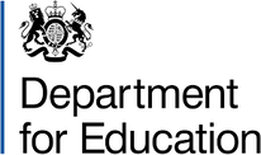













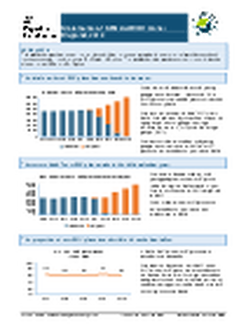
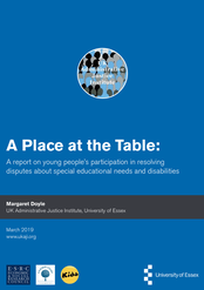


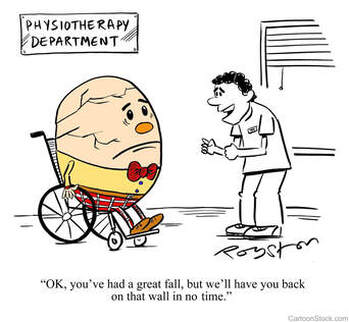

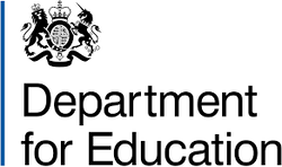










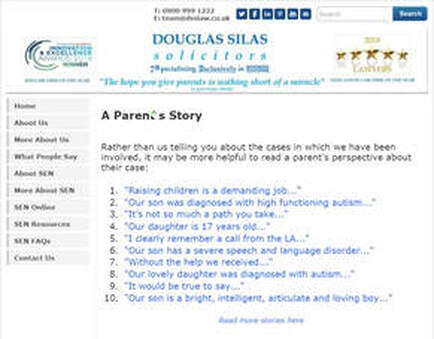


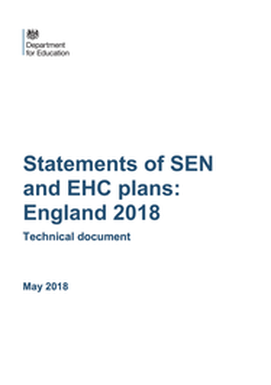
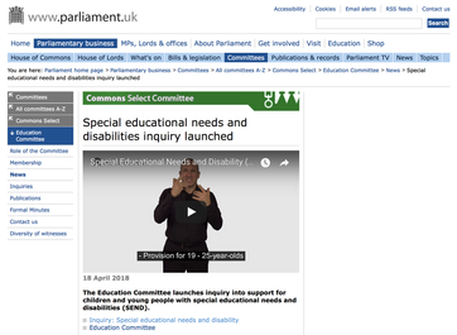
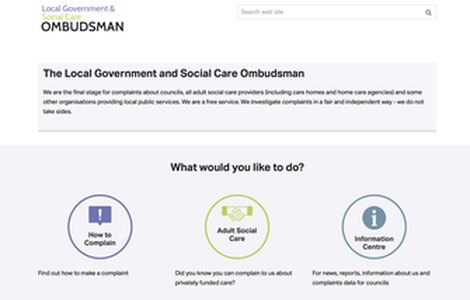
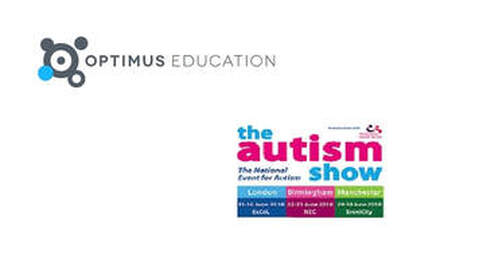


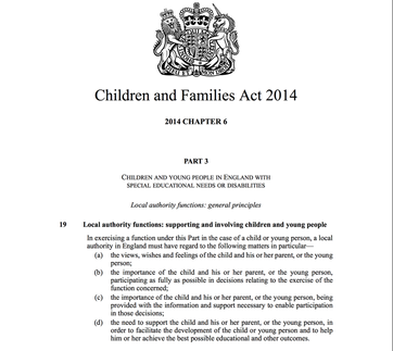


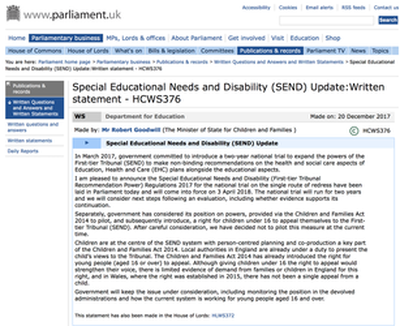



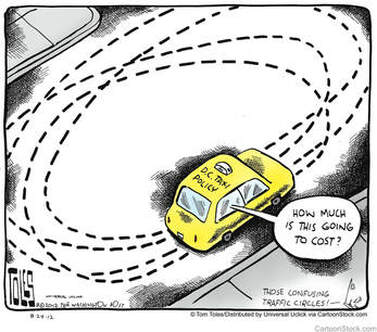
 RSS Feed
RSS Feed







